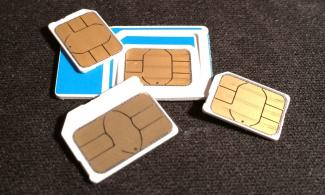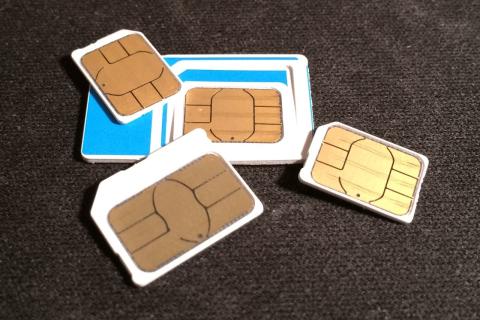
The National Communication Commission had on Monday threatened that SIM cards not linked to the identification number issued by the National Identity Management Commission would be blocked.
Paradigm Initiative, an advocacy organisation, has asked a federal high court to stop the Nigerian government and telecommunications service providers from disconnecting all SIM cards not linked to the national identity number by December 30.
The National Communication Commission had on Monday threatened that SIM cards not linked to the identification number issued by the National Identity Management Commission would be blocked.

The directive was based on the outcome of a meeting of key stakeholders in the communications industry convened by Isa Ali Pantami, the minister of Communications and Digital Economy.
The development has generated controversy with many Nigerians expressing their displeasure over the new directive.
Paradigm Initiative in a statement on Thursday said it is seeking a perpetual injunction restraining the government and the service providers from carrying out the order because the directive violates fundamental rights to freedom of expression of Nigerian citizens as guaranteed by Section 39 of the Nigerian 1999 constitution.
"The proposed blocking of SIM cards not linked with the National Identity Number is unlawful and unconstitutional," said Adeboye Adegoke, a senior programme manager at Paradigm Initiative.
"Many young people and others, using their mobile phones for expression or to do business online, will be affected by the poorly thought-out policy. No reasonable Nigerian will support such a policy that is geared to make life unbearable for Nigerian citizens.
"In June 2020, the Director-General of the NIMC, Aliyu Aziz said only 38% of Nigerians have any form of identification. Over 100 million Nigerians have no identity. These include the poorest and the most vulnerable groups, such as the marginalised – women and girls, the less-educated people, migrants, refugees, asylum seekers, stateless persons, people with disabilities and people living in rural and remote areas."
Valery Nijaba, communications officer at Paradigm Initiative, said the policy had created panic in the polity since it was announced.
Nijaba said, "Nigeria at the moment is experiencing a 2nd wave of the COVID-19 pandemic according to the daily numbers from the Nigeria Centre for Defence Control (NCDC) in the past one week.
"This is a time when we need to discourage public gatherings, crowding, and the likes, but it appears that the government is not sensitive enough to see those nuances and has asked that 100 million Nigerians should go and register for the National Identification Number within two weeks. So, we are left with no choice but to seek the intervention of the court.
"Requiring over 100 million Nigerian citizens to register for NIN in two weeks is not only unrealistic but a fire brigade approach to governance that will not bring any value to the people.
"Whatever the government is trying to achieve by the strange directive is ignoble. When the same government tried to compel students writing UTME examinations to register for the NIN as a prerequisite to sitting for the tests last year, many students couldn't register, with documented cases of government officials and law enforcement officials weaponising the desperation of the students to register for NIN to extort them and their parents.
"The government was forced to walk back on the policy at that instance. These are the type of effects the fire-brigade approach to policymaking leads to."